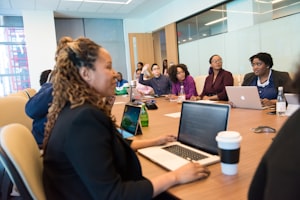Psychological safety refers to feeling safe and comfortable expressing oneself without fear of negative consequences, such as humiliation or retaliation. Psychological safety is crucial for building trust, encouraging collaboration, and promoting innovation in the workplace. However, for BIPOC (Black, Indigenous, and People of Color) individuals, psychological safety concerns extend beyond the workplace, including fears of safety and belonging in their communities. These concerns can impact their sense of psychological safety in the workplace and require special attention from leaders.
The Fear of Safety and Belonging Outside of Work
According to a study conducted by Deloitte, BIPOC individuals face higher levels of discrimination and harassment in their daily lives, which can lead to psychological distress and decreased job satisfaction. For example, BIPOC individuals may experience racial profiling, discrimination, or hate crimes in their neighborhoods. These experiences can create a sense of isolation, anxiety, and fear, which can affect their performance, engagement, and overall well-being at work. A sense of belonging outside of work is important for psychological safety and may affect how individuals interact with their colleagues, leaders, and the organization.
The Importance of Psychological Safety in the Workplace
Psychological safety is a critical component of a healthy workplace culture. Employees who feel safe and comfortable are likelier to take risks, ask questions, and share ideas. This can lead to better decision-making, innovation, and collaboration. According to research conducted by Google, teams with high levels of psychological safety are more effective and have better outcomes than those with low levels.
What Leaders Can Do to Support Psychological Safety for BIPOC Individuals
Leaders play a crucial role in promoting psychological safety in the workplace, particularly for BIPOC individuals who may be facing additional concerns outside of work. Here are some strategies leaders can use to support psychological safety for BIPOC individuals:
- Acknowledge the impact of external factors on psychological safety. Leaders should acknowledge the potential impact of external factors such as discrimination, hate crimes, and other forms of oppression on employees' psychological safety. This shows that leaders know the issues and are committed to creating a safe and supportive workplace culture.
- Provide opportunities for open dialogue. Leaders can create a safe space for employees to share their experiences and concerns. This can be done through regular check-ins, listening sessions, or affinity groups. This makes employees feel heard and understood, contributing to a sense of belonging and psychological safety.
- Educate employees and create a culture of inclusivity. Leaders can provide education and training for employees to better understand the experiences of BIPOC individuals and create a culture of inclusivity. This can include workshops on cultural competency, unconscious bias, and privilege. This helps to create a shared understanding of the issues and promotes empathy and understanding.
Psychological safety is essential for creating a healthy workplace culture where employees feel valued, supported, and comfortable expressing themselves. However, for BIPOC individuals, psychological safety concerns extend beyond the workplace, including fears of safety and belonging in their communities. Leaders must acknowledge these concerns and provide support to create a safe and inclusive workplace culture. Doing so can promote a sense of belonging and psychological safety, leading to better outcomes and greater success for the organization.
Resources










